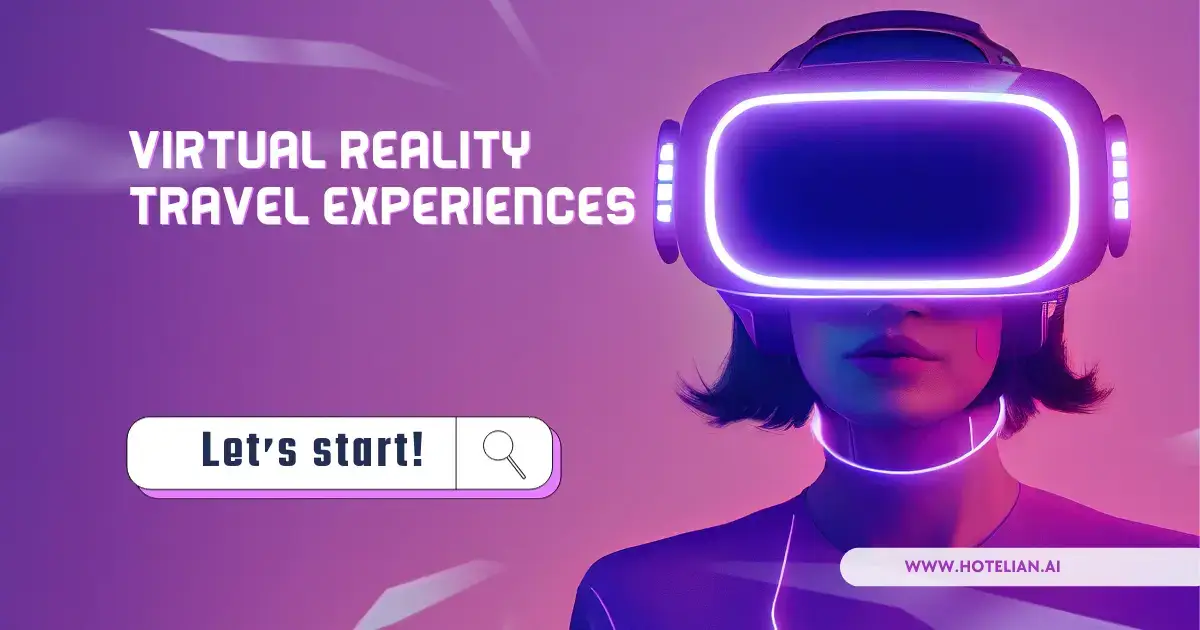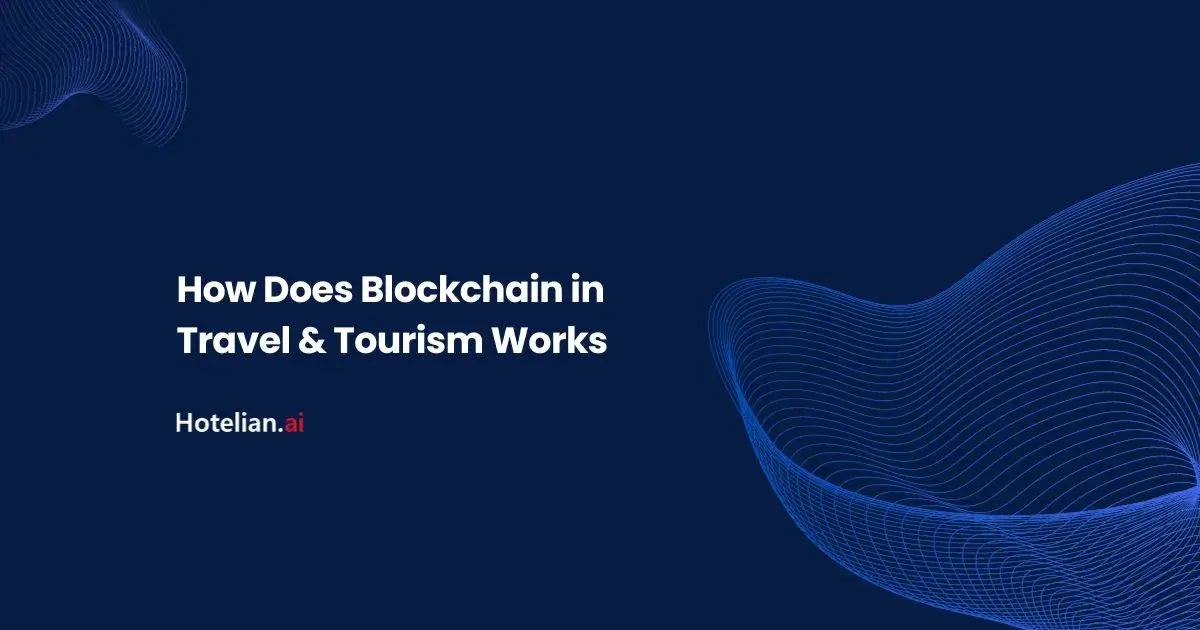Table of Contents
Introduction to Virtual Reality Travel
Discover the revolutionary world of Virtual Reality Travel in travel & tourism industry, a technological marvel reshaping our travel experiences. This section delves into the evolution of VR from a niche concept to a pivotal tool in the travel industry, highlighting how virtual tours and digital exploration have become increasingly accessible.
VR’s profound impact on the travel and tourism sectors extends far beyond entertainment. By offering immersive VR travel experiences, this technology is transforming how we explore and interact with different cultures and destinations worldwide, making the wonders of global travel more inclusive and accessible.
In this article of Hotelian.ai will Explore the multifaceted benefits of virtual tourism through VR. This technology is not just about accessibility; it’s about offering a risk-free, cost-effective way to journey across the globe. From virtual reality tours of remote destinations to experiencing world cultures, VR travel provides a unique and personalised exploration opportunity.
Immersive Virtual Travel Experiences
Immerse yourself in the unparalleled experiences offered by VR travel. Using advanced 360-degree videos and dynamic 3D environments, VR takes you on a journey from the highest peaks to the deepest oceans, all from the comfort of your home.
VR in travel is a beacon of accessibility, bringing the joy of exploration to all, regardless of physical, financial, or time constraints. It opens up new possibilities for different groups, from students to the elderly, offering everyone a chance to embark on virtual journeys around the globe.
Virtual reality tourism is constantly evolving, offering an array of experiences that cater to various interests. From interactive virtual tours of iconic museums to serene walks on distant beaches, these experiences are becoming more sophisticated and engaging, tailored to individual explorations.
Virtual Reality as an Educational and Cultural Tool
VR in tourism stands out as an innovative educational tool. It provides immersive experiences in history, culture, and environmental studies, bringing classroom learning to life. VR’s capability to simulate historical events or natural environments offers a new dimension in education and cultural understanding.
Experience the rich tapestry of global cultures through virtual tourism. VR travel allows users to gain insights into diverse lifestyles and traditions, fostering a deeper understanding and appreciation of the world’s cultural diversity.
Educational institutions are increasingly integrating VR into their curricula, offering students virtual field trips and interactive learning experiences. These applications highlight VR’s potential as an essential tool in modern education, providing hands-on experiences that traditional methods cannot.
Enhancing Real-World Travel with Virtual Previews
Virtual reality in travel planning offers a unique ‘try before you fly’ experience. Prospective travellers can use VR to explore destinations, hotels, and attractions in detail, aiding in making more informed and personalised travel decisions.
Travel agencies and tour operators are integrating VR to enrich real-world travel experiences. Through virtual previews and augmented tours, they provide a new layer of engagement and excitement for travellers, enhancing traditional tourism practices.
Case studies demonstrate how VR has enriched real travel experiences, from interactive tours to augmented reality guides. These technologies add significant value to traditional travel, offering a glimpse into the future of tourism.
Environmental Benefits of VR
VR travel is a step towards sustainable tourism, offering environmentally friendly alternatives to traditional travel. By reducing the need for physical travel, VR helps in lowering carbon emissions and preserving natural sites.
The role of virtual reality in promoting eco-friendly tourism is becoming increasingly recognised. By offering virtual visits to sensitive or remote locations, VR aids in reducing the environmental impact of tourism, aligning with sustainability goals.
The article addresses potential challenges and criticisms of VR’s environmental claims. It provides a balanced view of how VR complements physical travel, contributing to conservation efforts and sustainable tourism practices.
Future Trends in VR Travel
Stay abreast of the latest advancements in VR technology and how they’re shaping travel experiences. From improved VR headsets to more interactive and realistic virtual tours, the technology is constantly evolving to enhance user experience.
The future of Virtual Reality Travel in tourism industry looks promising, with potential developments like sensory experiences and user-friendly interfaces on the horizon. These innovations promise to make virtual travel even more immersive and accessible.
Predictions for future developments and innovations in VR travel are based on current technological trends and market demands. The potential for new applications, such as personalised virtual travel assistants and more collaborative social travel experiences, illustrates the dynamic nature of this field.
Conclusion
As we conclude our exploration of Virtual Reality in travel, it’s clear that VR is more than just a technological innovation; it’s a new way of experiencing and interacting with the world. It offers endless possibilities for exploration, education, and cultural exchange, all while promoting sustainability and inclusivity.
The future of VR in travel looks promising, with continuous advancements and increased adoption. As technology evolves, we can expect even more immersive and interactive experiences, further blurring the lines between virtual and physical travel.
Virtual Reality travel stands at the forefront of a new era in tourism, one that is accessible, sustainable, educational, and, most importantly, boundless. It invites us to reimagine the possibilities of exploration and to embrace this new horizon with open arms and curious minds.

